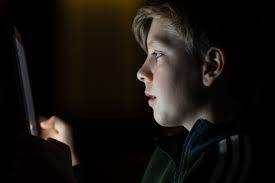9 Signs Your Child May Be Watching Porn
Introduction:
The ubiquity of the internet and easy access to digital devices has raised concerns among parents regarding their children's online activities. One prevalent issue is the exposure of children to pornography, which can have significant psychological and emotional consequences. While it can be a sensitive topic to broach, it is crucial for parents to be aware of potential signs that their child may be watching porn. By recognizing these signs, parents can take proactive steps to address the issue and foster healthy online behavior.
1. Drastic changes in behavior:
One of the most noticeable signs of a child watching porn is a sudden and unexplained change in behavior. They may become withdrawn, secretive, or exhibit mood swings. Additionally, they may show a lack of interest in activities they previously enjoyed or become unusually defensive when questioned about their online activities.
2. Excessive secrecy regarding devices:
Children who are watching porn may become overly protective of their digital devices. They may hide their screens, quickly switch tabs or close windows when someone enters the room, or become defensive when asked about their online privacy. Such behavior can indicate an attempt to conceal their viewing habits.
3. Inappropriate knowledge or language:
If your child starts using explicit or sexual language that seems beyond their age-appropriate understanding, it may indicate exposure to pornography. They may display a heightened awareness of sexual topics or engage in conversations that seem inappropriate for their age group.
4. Increased interest in sexual topics:
Children exposed to pornography may exhibit a sudden and intense curiosity about sexual topics. They might ask explicit questions or seek information about sexual acts that go beyond their developmental stage. Keep an eye out for a disproportionate focus on sexual content in their conversations, drawings, or written materials.
5. Frequent clearing of browser history:
Clearing browsing history is a common practice among individuals trying to hide their online activities, including watching porn. If you notice your child regularly deleting their browser history, it may be indicative of attempts to conceal their viewing habits.
6. Excessive screen time and isolation:
Children engrossed in pornography may spend an excessive amount of time online, particularly in isolation. They may retreat to their rooms or private spaces for extended periods, becoming absorbed in their devices. They may also lose interest in socializing or participating in family activities.
7. Drastic decline in academic performance:
Watching porn can be distracting and impact a child's ability to focus on their studies. If your child's academic performance exhibits a sudden and significant decline, it may be worth considering whether their online activities, including exposure to pornography, are interfering with their ability to concentrate and learn.
8. Development of unrealistic expectations:
Pornography often presents unrealistic and distorted depictions of sex and relationships. Children exposed to such content may develop unrealistic expectations about their own bodies, sexual encounters, or intimate relationships. They may display dissatisfaction with their appearance or demonstrate a skewed understanding of consent and boundaries.
9. Changes in sleep patterns:
Excessive exposure to pornography can disrupt a child's sleep patterns. They may stay up late at night to access explicit content or experience disturbed sleep due to the emotional impact of what they have seen. Keep an eye out for signs of fatigue, insomnia, or irregular sleep schedules.
Conclusion:
As a responsible parent, it is essential to maintain open lines of communication with your child and be vigilant about their online activities. If you notice any of these signs suggesting your child may be watching porn, it is crucial to approach the situation with empathy, understanding, and education. Engage in honest conversations about healthy sexuality, the risks of pornography, and the importance of setting boundaries while using the internet. By fostering a supportive and informed environment, you can help your child navigate the digital world responsibly and protect their well-being.



No comments yet
Be the first to share your thoughts!